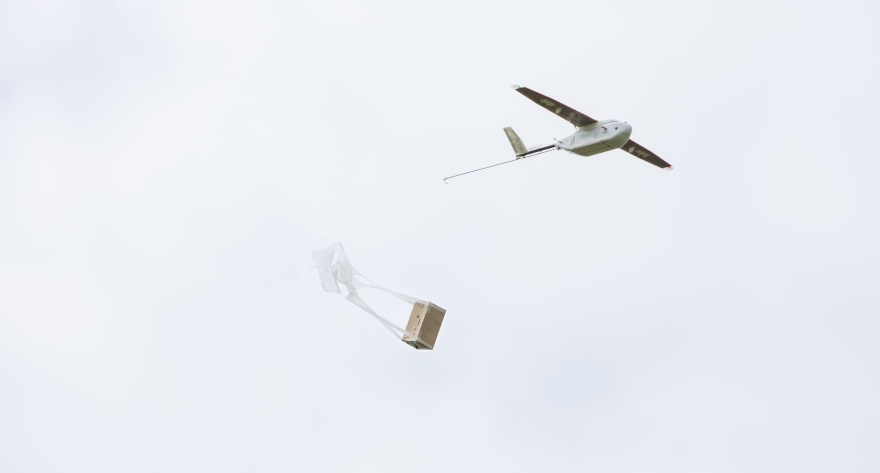Zipline eyes Tanzania as its next station for drone deliveries after Rwanda
Supply Chain - The Tanzanian government has partnered with Zipline, automated logistics company based in California, to begin using drones to make up to 2,000 life-saving deliveries per day to over one thousand health facilities. The drones and delivery service are built and operated by Zipline.

Sept 2, 2017: The Tanzanian government has partnered with Zipline, automated logistics company based in California, to begin using drones to make up to 2,000 life-saving deliveries per day to over one thousand health facilities. The drones and delivery service are built and operated by Zipline.
Beginning first quarter of 2018, Tanzania will make on-demand drone delivery of blood transfusion supplies, emergency vaccines, HIV medications, anti-malarials and critical medical supplies like sutures and IV tubes.
Working in conjunction with the Tanzanian Ministry of Health and the country's Medical Stores Department (MSD), Zipline will establish four distribution centres across the country.
The first distribution centre, located in Dodoma, the country’s capital, will begin its first flights in the first quarter of 2018. Three additional distribution centres—two in the northwestern corner of Tanzania near Mwanza and Lake Victoria, and one in the Southern Highlands near Mbeya—will follow, working in close collaboration with civil and military aviation authorities.
Each of the four distribution centers will be equipped with up to 30 drones and is capable of making up to 500 on-demand delivery flights a day. The drones can carry 1.5 kilos of cargo, cruising at 110 kilometers an hour, and have a round trip range of 160 kilometers. Health workers place delivery orders by text message and receive their package within 30 minutes on average. Zipline’s drones take off and land at the distribution center only, requiring no additional infrastructure at the clinics it serves.
Leading global health researchers from the Ifakara Health Institute and the University of Glasgow will evaluate the impact of Tanzania’s drone delivery service on the clinics it will serve in Dodoma. The evaluation research will be supported by the Human Development Impact Fund, the Bill & Melinda Gates Foundation, and Saving Lives at Birth, an initiative led by the US Agency for International Development.
"Our vision is to have a healthy society with improved social well being that will contribute effectively to personal and national development; working with Zipline will help make that vision a reality,” said Dr. Mpoki Ulisubisya, permanent secretary of the Tanzania Ministry of Health.
“We strive to ensure that all 5,640 public health facilities have all the essential medicines, medical supplies and laboratory reagents they need, wherever they are—even in the most the hard to reach areas” said Laurean Bwanakunu, director general of Tanzania's Medical Stores Department. “But that mission can be a challenge during emergencies, times of unexpected demand, bad weather, or for small but critical orders. Using drones for just-in-time deliveries will allow us to provide health facilities with complete access to vital medical products no matter the circumstance.”
In October of 2016, Zipline and the Government of Rwanda launched the world’s first national drone delivery service to make on-demand emergency blood deliveries to transfusion clinics across the country. Since the October launch, Zipline has flown more than 100,000 km in Rwanda, delivering 2,600 units of blood over 1,400 flights.
“Millions of people across the world die each year because they can’t get the medicine they need when they need it,” said Keller Rinaudo, CEO, Zipline.
“It’s a problem in both developed and developing countries. But it’s a problem we can help solve with on-demand drone delivery. And African nations are showing the world how it’s done.”
Zipline’s commercial partnerships with Rwanda and Tanzania are expected to save thousands of lives over the next several years. Zipline is hard at work catching up to demand to expand drone delivery services to countries across the world throughout 2018.


